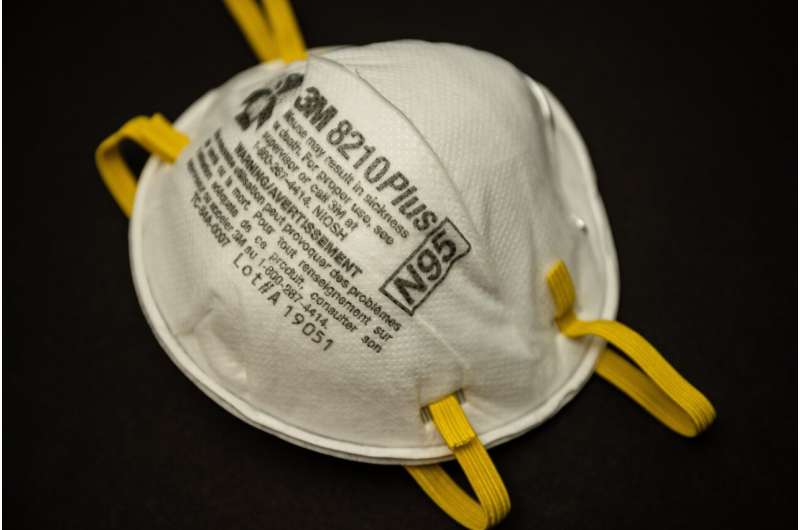
The novel coronavirus has created unprecedented challenges that were unforeseeable two years ago. The DU Newsroom has been speaking with faculty experts about issues that have arisen or have been exacerbated because of the pandemic. Alex Huffman is an associate professor in the Department of Chemistry and Biochemistry in the College of Natural Sciences and Mathematics. He specializes in aerosols, bioaerosols and instrument development. Huffman shares his thoughts about the future of masking in public and travel in this interview with the DU Newsroom.
During the pandemic, masks have been one part of the solution, in addition to washing hands, social distancing and remote work and school. How important have face masks been at reducing the spread of COVID?
Well-fitting, high-quality face masks have been tremendously important to reducing the spread of COVID, both for the individual and for the community. I would say they are probably the single most important tool we’ve had to fight the spread of COVID, and without them, the pandemic would have taken a much darker turn. Good masks reduce the infectious dose for the wearer and keep the virus from being exhaled from an infectious person into the room. Masks of poorer filtration quality or that are designed to be worn loosely (think of the blue surgical masks) have still helped reduce the spread somewhat, as has been shown by population studies, and have played an important role.
Looking ahead to the day when COVID is no longer a threat, will there still be situations when we should consider wearing a mask?
Masks work by taking particles out of the air, no matter whether you’re trying to protect the people in the room from your infectious aerosol or whether you’re trying to protect yourself against airborne viruses, or something else, like wildfire smoke. And, whether it’s today or a century from now, the physical principles by which face masks work and the protection they provide against airborne particles will remain the same. I’m confident that COVID and other infectious diseases will see future surges that will require both individual and community attention. Masks will certainly play a role in keeping people healthy in those situations. For example, many Asian countries already used masks on a routine basis to protect against seasonal airborne illnesses like the seasonal flu. I think that’s a good thing.
Airlines have touted the use of HEPA filters on planes to reduce COVID risk. Will this type of air filtration become more common in all public locations?
A public conversation about indoor air quality has long been overdue, and I think the pandemic opened the eyes to a lot of people how important it is to have clean air to breathe in the spaces where we spend so much of our time. There has been a big push during the pandemic by air quality experts to shift the paradigms of how we think about and value indoor air. Broad improvements in building-level ventilation systems and wider use of room-level controls, like portable HEPA filter air cleaners and certain types of disinfecting UV light-based systems, are important parts of what I hope will become more mainstream. I also hope we can move forward as a society to improve the transparency of public information about indoor air quality, for example by utilizing and publicly reporting indoor carbon dioxide levels as a proxy for ventilation quality. I’ve helped take baby steps in that direction at DU, as have my colleagues across the world, but they are only the first steps.
These are big challenges that deeply affect everyone’s health—and not just related to infectious disease, but as related to toxic chemicals in the indoor air, mold spores and allergens, and airborne pollution that gets trapped indoors as well.
Is there anything else you’d like to add about the future of masking in public/travel?
HEPA ventilation on commercial airplanes can indeed make the air quality quite safe while flying, but there are lots of other factors to consider when thinking about the safety of air while traveling. For example, airports don’t always have sufficient ventilation, and airplanes themselves are frequently not able to turn on full ventilation until the plane is airborne. So, whether a person is particularly susceptible to sickness, or during periods when high levels of an infectious airborne disease are circulating, masks and other precautions will be important at times.
Source: Read Full Article